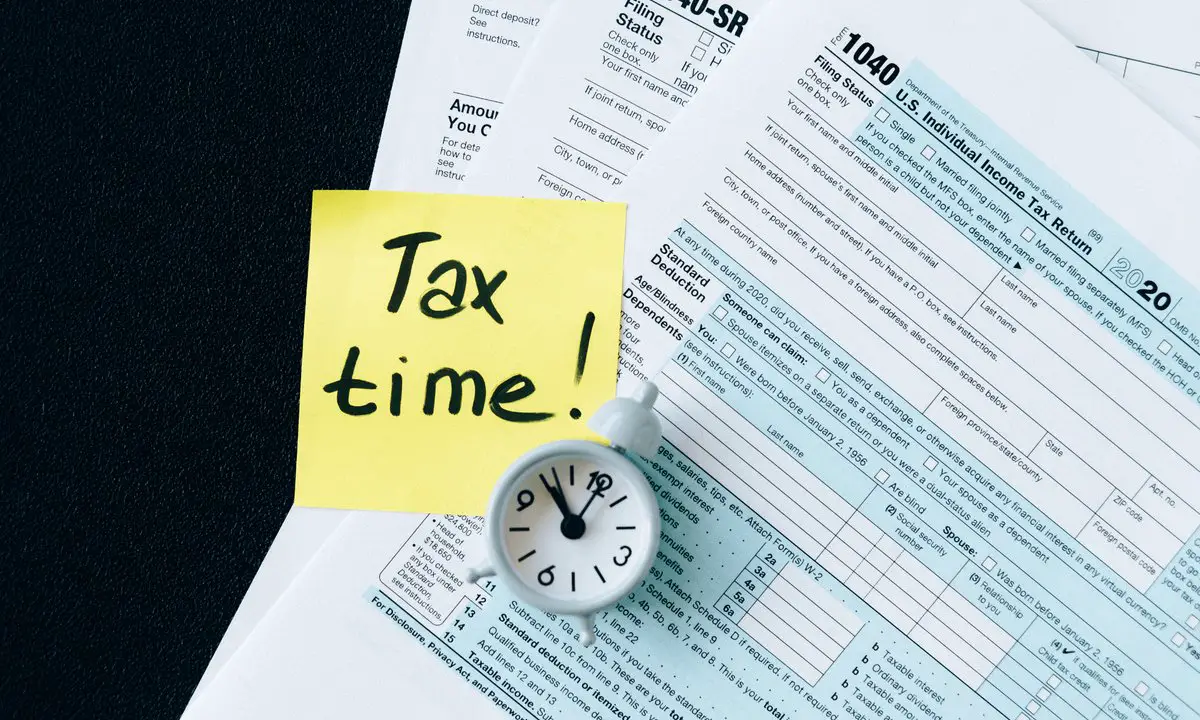Are you ready to file your taxes but feeling overwhelmed by the complexity of the process? It’s no secret that navigating the world of tax preparation can be daunting, especially if you want to ensure accuracy and maximize your return. That’s where choosing the right tax preparer becomes crucial. When it comes to what to consider when choosing a tax preparer, there are a few key factors that can make all the difference. In this article, we’ll dive into these considerations and empower you to make an informed decision that will set you up for financial success. Let’s get started.
What to Consider When Choosing a Tax Preparer
Introduction
Tax season can be a daunting time for many individuals and businesses. With complex tax laws and ever-changing regulations, it is no wonder that people often seek the help of a professional tax preparer. Choosing the right tax preparer is crucial, as they will have access to your personal and financial information. In this article, we will explore the essential factors to consider when selecting a tax preparer. From qualifications and expertise to trustworthiness and fees, we will cover everything you need to know to make an informed decision.
Qualifications and Expertise
When it comes to taxes, you want to ensure that your tax preparer has the necessary qualifications and expertise to handle your tax matters. Here are some key considerations:
- Educational Background: Look for a tax preparer who has formal education in accounting, finance, or a related field. A certified public accountant (CPA) or an enrolled agent (EA) are excellent choices, as they have undergone rigorous training and must meet specific educational requirements.
- Credentials and Certifications: Check if your tax preparer holds any additional credentials or certifications. For example, a tax preparer who is a member of the National Association of Tax Professionals (NATP) or the American Institute of CPAs (AICPA) demonstrates a commitment to professional development.
- Specializations: Depending on your tax situation, you may benefit from a tax preparer who specializes in certain areas such as small business taxes, international tax laws, or estate planning. Ensure that the tax preparer has experience handling tax matters similar to yours.
Reputation and Trustworthiness
Entrusting your financial information to a tax preparer requires a high level of trust. Here are some factors to consider when evaluating a tax preparer’s reputation and trustworthiness:
- Reviews and Testimonials: Look for reviews and testimonials from previous clients. Websites like Yelp, Google My Business, or the tax preparer’s own website can provide valuable insights into the experiences of others. Consider both positive and negative feedback.
- Professional Associations: Check if the tax preparer is a member of any professional organizations or associations. Membership in such organizations often indicates a commitment to ethical standards and continuing education.
- Compliance: Ensure that the tax preparer complies with all applicable tax laws and regulations. They should follow best practices and adhere to ethical guidelines set by their professional associations.
- Referrals: Seek recommendations from friends, family, or colleagues who have had positive experiences with a tax preparer. Personal referrals can provide valuable insights and help you build trust in the preparer’s abilities.
Communication and Availability
Good communication is essential when working with a tax preparer. Consider the following factors related to communication and availability:
- Accessibility: Ensure that the tax preparer is easily reachable and accessible. They should be responsive to your questions and concerns throughout the tax preparation process.
- Clear Communication: Look for a tax preparer who can explain complex tax matters in plain language. They should be able to communicate effectively and ensure that you understand the information being presented.
- Availability: Consider the availability of the tax preparer, especially during the tax season. Some tax preparers may be overwhelmed with clients, which could result in delayed responses or rushed work. Ensure that they can dedicate adequate time to your tax preparations.
Fee Structure and Transparency
Understanding the fee structure and ensuring transparency in financial matters is crucial. Consider the following aspects when evaluating a tax preparer’s fee structure:
- Fee Structure: Inquire about the tax preparer’s fee structure and how they charge for their services. Some tax preparers charge a flat fee, while others may charge an hourly rate. Make sure you understand how much you will be charged and what services are included.
- Hidden Costs: Ask about any potential hidden costs or additional fees that may arise during the tax preparation process. It is important to have a clear understanding of the total costs involved.
- Payment Policy: Clarify the tax preparer’s payment policy and acceptable methods of payment. Some preparers may require upfront payment, while others may allow for payment upon completion of the taxes.
- Transparency: A reputable tax preparer should be transparent about their fees, services, and any potential changes or updates to your tax situation. They should provide clear explanations and ensure that you are comfortable with the financial aspects.
Security and Privacy
Since tax preparation involves sensitive financial information, it is crucial to prioritize security and privacy. Consider the following factors when assessing a tax preparer’s approach to data protection:
- Data Encryption: Inquire about the tax preparer’s data encryption practices. They should use secure methods to transmit and store your personal and financial information.
- Privacy Policy: Check if the tax preparer has a clear and comprehensive privacy policy in place. This policy should outline how they collect, use, and protect your data.
- Protection against Identity Theft: Ask about the tax preparer’s measures to protect against identity theft and fraudulent activities. They should have safeguards in place to prevent unauthorized access to your information.
- Secure File Sharing: If you need to share documents electronically, ensure that the tax preparer provides a secure file-sharing platform or encrypted email for transmission.
Choosing the right tax preparer is a critical decision that can have a significant impact on your financial well-being. By considering factors such as qualifications, reputation, communication, fee structure, and data security, you can make an informed choice. Remember to conduct thorough research, ask for references, and trust your instincts when selecting a tax preparer. By doing so, you can alleviate the stress of tax season and ensure accurate and compliant tax filings.
How To Choose A Tax Preparer | Forbes
Frequently Asked Questions
Frequently Asked Questions (FAQs)
What should I consider when choosing a tax preparer?
When choosing a tax preparer, there are several important factors to consider:
How do I ensure that a tax preparer is qualified?
To ensure that a tax preparer is qualified, consider the following:
Are there any specific certifications or credentials I should look for in a tax preparer?
When choosing a tax preparer, it is advisable to look for certain certifications or credentials, such as:
What is the best way to verify a tax preparer’s credentials?
To verify a tax preparer’s credentials, you can:
Should I choose a tax preparer who offers a guarantee of accuracy on my tax return?
While a guarantee of accuracy on your tax return may be appealing, it is important to consider the following:
What questions should I ask a tax preparer before hiring them?
Before hiring a tax preparer, you should ask them the following questions:
How can I find out about a tax preparer’s reputation?
You can find out about a tax preparer’s reputation by:
Does the cost of a tax preparer indicate their level of expertise?
The cost of a tax preparer does not necessarily indicate their level of expertise. It is important to consider the following:
Final Thoughts
When choosing a tax preparer, there are several important factors to consider. Firstly, it is crucial to ensure that the tax preparer has the necessary qualifications, experience, and knowledge of tax laws to accurately handle your tax matters. Additionally, reputation and credibility should be taken into account, as well as accessibility and communication. It is wise to inquire about their fees and compare them with other tax preparers, but be cautious of unusually low fees, as they may signify a lack of expertise. Lastly, considering their availability during non-tax season and the level of support they provide is essential to ensure a smooth tax preparation process. By keeping these considerations in mind, you can find a reliable tax preparer who will effectively meet your needs.



